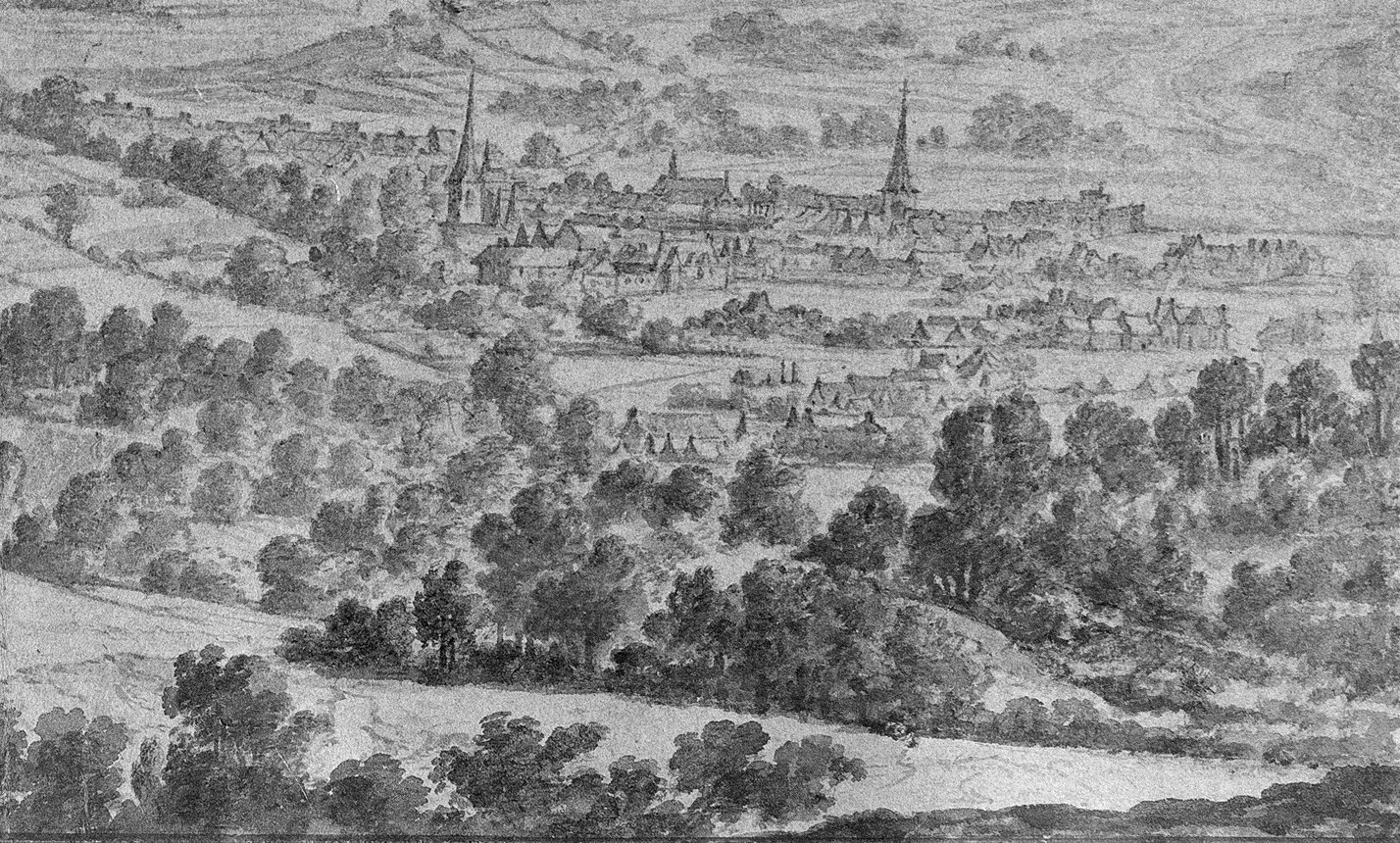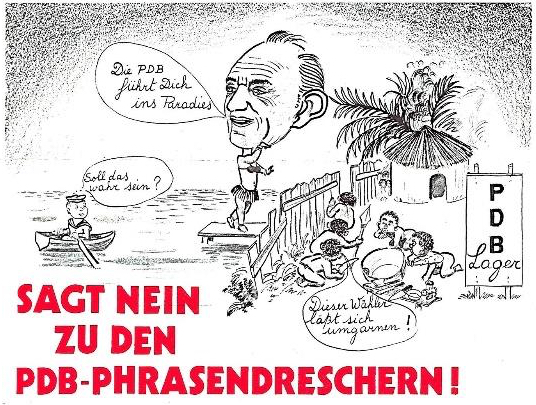What do we see? In the centre of the caricature is the oversized head of a man. It is the stylised image of Michel Louis, one of the co-founders of the Party of German-speaking Belgians (PDB). The PDB advocated for the same autonomy for German-speaking Belgians that Flemings and Walloons were enjoying.
In the picture, Michel Louis wears the clothes of an islander and beckons with the words ‘The PDB will lead you to paradise’. To his left, there is a disoriented sailor. On the right, there is a wooden fence, shielding from view what is happening on the island, and where natives live a primitive life. It is a ‘PDB camp’, as a sign makes clear. One of the natives there says: ‘This voter can be ensnared!’ The voter is portrayed as a sailor. Consequently, Michel Louis promises the voter a paradise, which, however, in reality – according to the depiction behind the fence – takes him back to the Stone Age, and to isolation.
This caricature can only be understood if we mentally transport ourselves back to the 1970s. In many people’s minds, ‘natives’ were considered barbaric, uneducated, and simple-minded. Islanders exuded the allure of the exotic and the forbidden. In the thinking of the time, one should not get involved with them.
The caricature was created in 1974, shortly after the first state reform (1971), which established three cultural communities in Belgium: the Flemish, the German, and the French cultural communities. At that time, the debate was mainly about what the future relationship between the cultural communities should be.
Two elements play an important role in this caricature. First, the traditional parties believed that the PDB’s will for autonomy would lead the German-speaking Belgians into a kind of ghetto on the edge of Belgium; this is what the island with the natives, who cannot broaden their horizons behind the board fence, stands for. The PDB wants the German-speaking Belgians to be separated as much as possible from the rest of the country’s population. Only the politicians of the PDB would then be able to communicate with the interior of the country and would be able to give the German speakers a distorted view of what was happening inside Belgium. They seduced the disoriented voters – hence the castaway and the islander. The fact that one of the island natives warns that the voter is being ensnared reflects his disappointment, and this too portrays Michel Louis and the PDB as deceptive seducers. Hence the red lettering, ‘Say no to the PDB phrase-mongers!’
Second, the question of the language skills of German-speaking Belgians also plays a role in this context. The traditional parties aimed for bilingualism in East Belgium. The PDB advocated for thoroughly learning the mother tongue first, and for learning a second language, French, later. The traditional parties denigrated the PDB politicians for this reason. The leaders of the PDB are themselves capable of speaking French. However, they would not allow their own voters to do so. The Socialist Party, for its part, sought a stronger connection with the French-speaking part of the country through the desired bilingualism of the East Belgians.
Later, the Socialist Party developed a more nuanced relationship to autonomy and bilingualism of the German-speaking Belgians. Among the impulses of a younger generation, it took the position in the 1990s that the democratisation of education could only be achieved through the primacy of the mother tongue.

